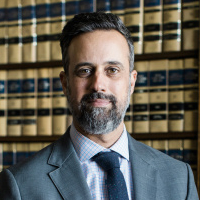Fairfield Felony Lawyer, California
Seth Morris
✓ VERIFIEDCriminal, Felony, Personal Injury
When the legal system fails you, you can’t leave yourself or your child at the mercy of a judge and 12 jurors. Seth Morris has saved his clients fro... (more)
Jo-Anna Marie Nieves
✓ VERIFIEDCriminal, Felony, DUI-DWI, Misdemeanor, White Collar Crime
Armed with considerable experience working for the District Attorney in Sacramento, CA and her voluminous representation of large corporate clients in... (more)
Richard Thomas Dudek
✓ VERIFIEDCriminal, Felony, Misdemeanor, White Collar Crime, DUI-DWI
Certified Criminal Law Specialist
Richard Dudek knows the Sacramento courts, procedures and prosecutors. Our highly skilled defense team includes licensed private investigators who use... (more)
Patrick Ewing Clancy
Family Law, Felony, Criminal, Personal Injury
Status: In Good Standing Licensed: 50 Years
Roxanne Monique Mosley
Misdemeanor, Felony, DUI-DWI, Criminal
Status: In Good Standing Licensed: 22 Years
Aaron Reuben Bortel
Criminal, DUI-DWI, Felony, Misdemeanor
Status: In Good Standing Licensed: 32 Years
FREE CONSULTATION
CONTACT




